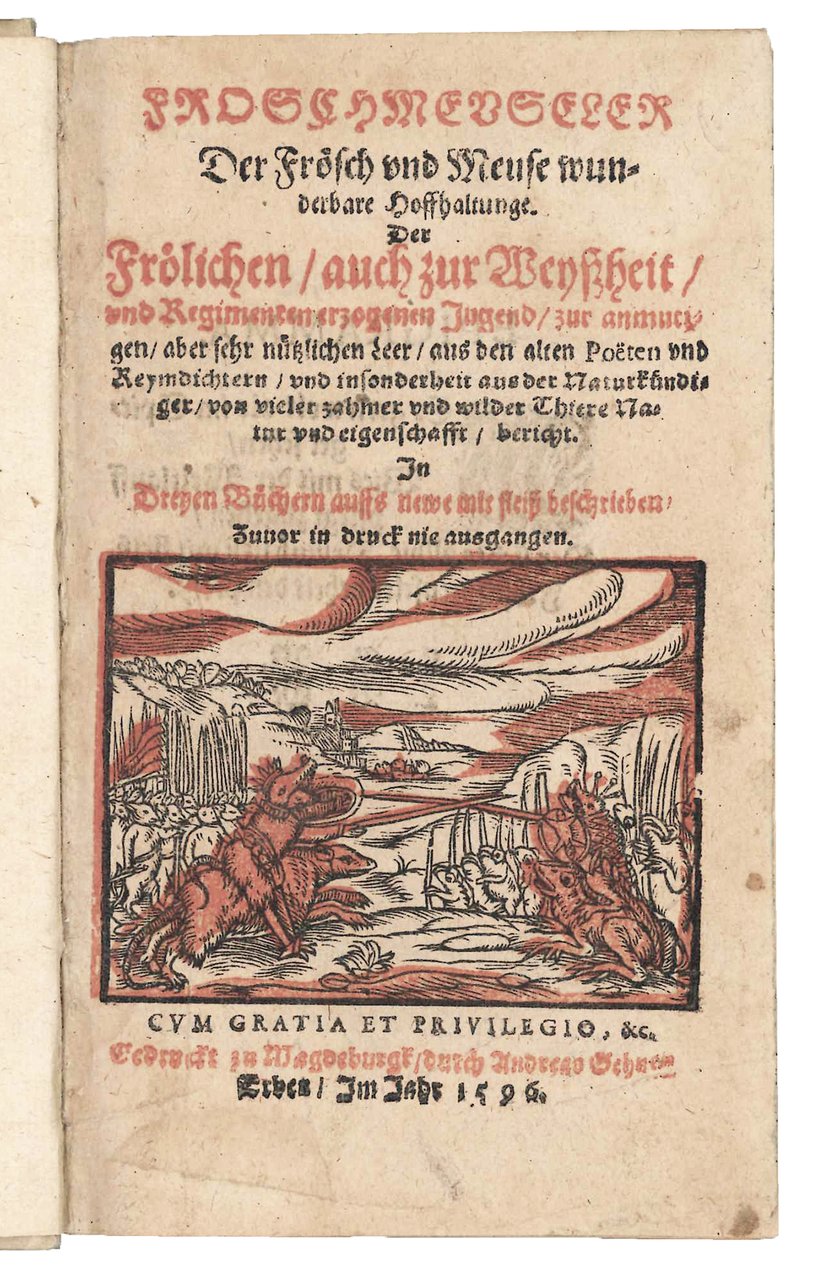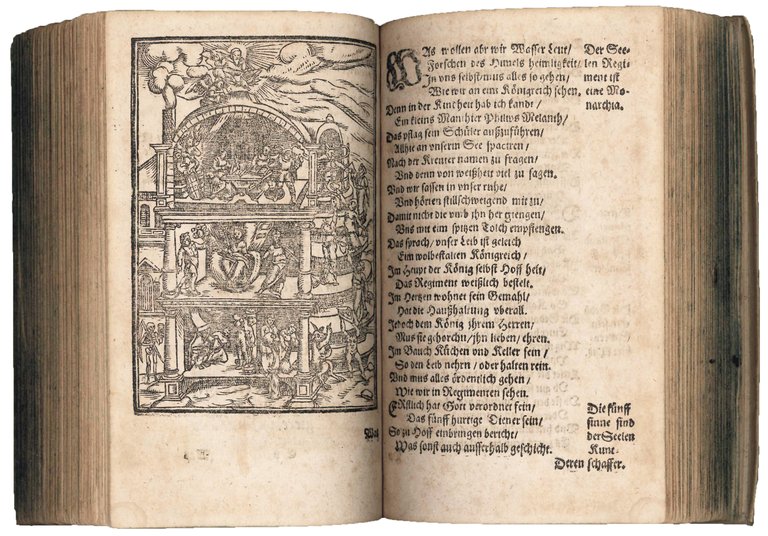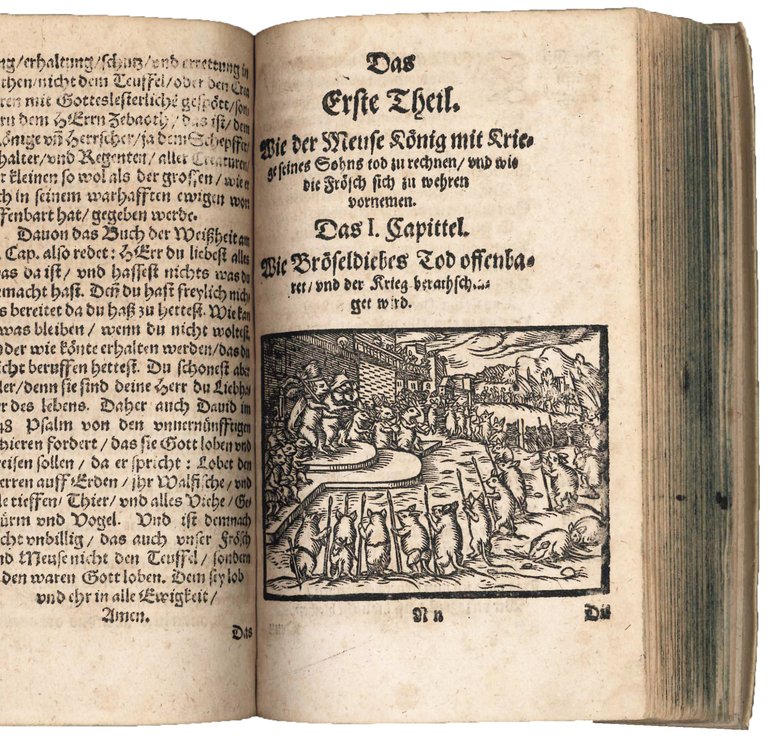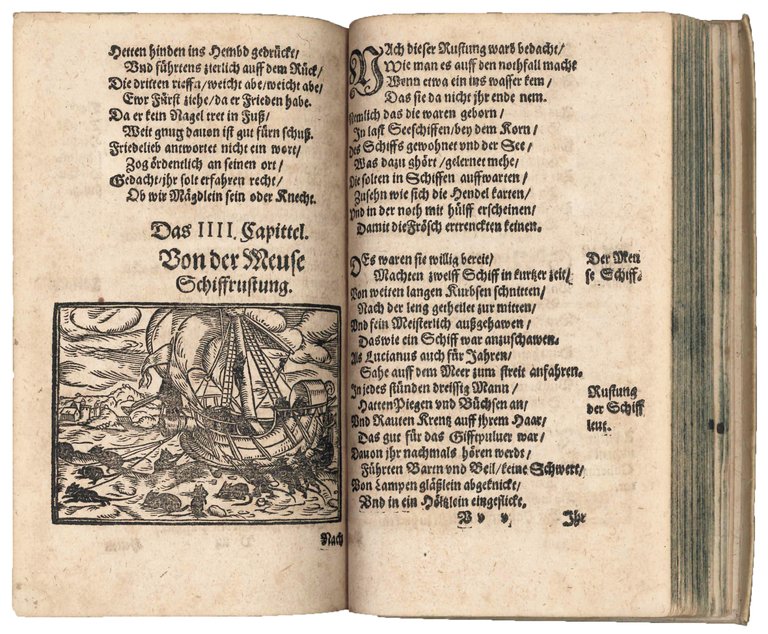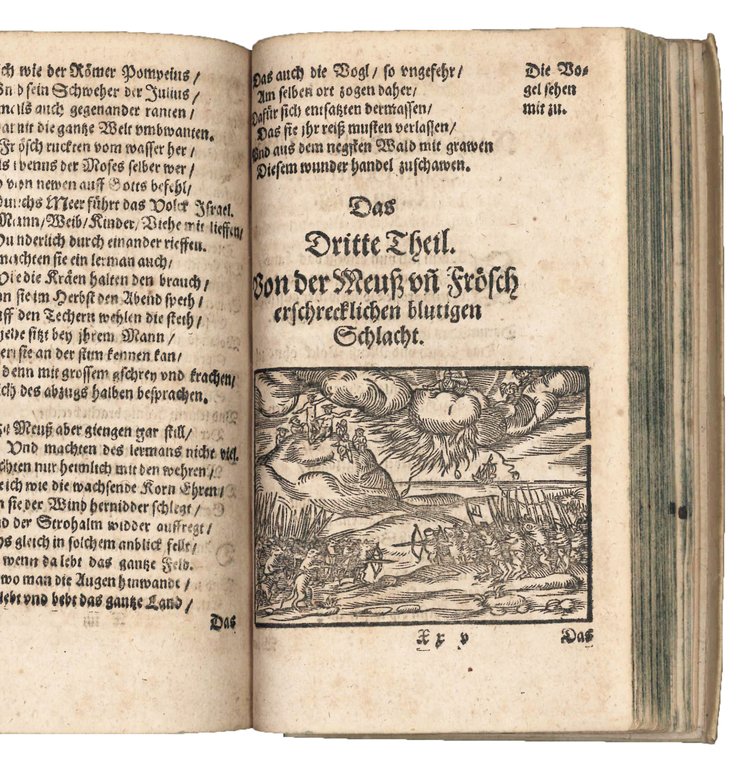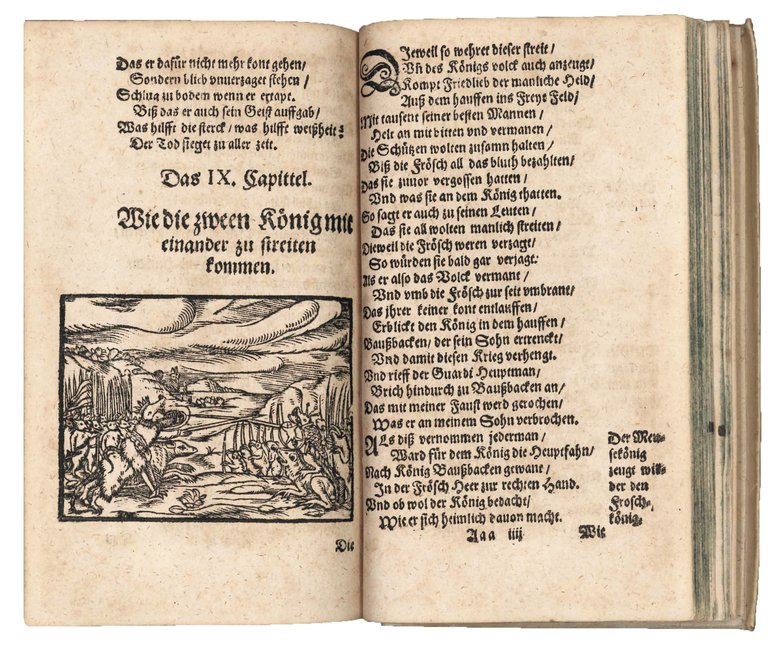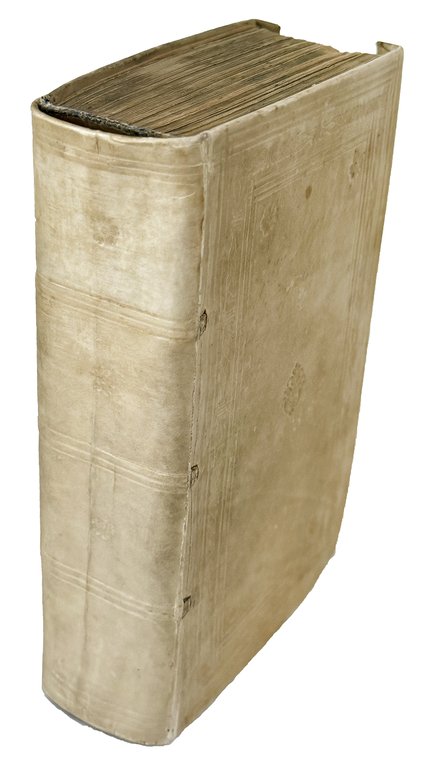Froschmeuseler. Der Frösch und Meuse wunderbare Hoffhaltunge. Der fröhlichen / auch zur Weyßheit / und Regimenten erzogenen Jugend / zur anmutigen aber ser nützlichen Leer / [...]
Froschmeuseler. Der Frösch und Meuse wunderbare Hoffhaltunge. Der fröhlichen / auch zur Weyßheit / und Regimenten erzogenen Jugend / zur anmutigen aber ser nützlichen Leer / [...]
Mode de Paiement
- PayPal
- Carte bancaire
- Virement bancaire
- Pubblica amministrazione
- Carta del Docente
Détails
- Année
- 1596
- Lieu d'édition
- Magdeburg
- Auteur
- ROLLENHAGEN, Georg (1542-1609)
- Éditeurs
- heirs of Andreas Gehne
- Thème
- Quattro-Cinquecento
- Etat de conservation
- En bonne condition
- Langues
- Italien
- Reliure
- Couverture rigide
- Condition
- Ancien
Description
8vo (165x95 mm). [399] leaves. Collation: A-Ddd8. Lacking the final blank leaf. Title printed in red and black with a vignette in center partly colored in red and 16 small woodcuts in the text (two repeated, one full page). Later blind-ruled stiff vellum with overlapping edges, blue edges (faded). Lightly uniformly browned, some occasional staining, small repaired hole to ll. R8 and R8 slightly affecting the text, otherwise a very good, genuine copy.
Extremely rare second edition (basically a reprint of the first edition issued by Gehne the year before) of this didactic-humoristic animal epic, a most singular and remarkable work of German literature between the sixteenth-century and the Baroque period. The work is dedicated to the learned Heinrich Rantzau (1526-1599), then the king of Denmark's representative in the duchies of Schleswig and Holstein. As Rollenhagen points to on several occasions, the work was written for the learned male youth: “Und ihr junge lustige Knaben / Die lust zu ehrbar kurtzweil haben.” (leaf C4v), and summarizes his intention: “Damit im schertz die gute Leer / Bey der Jugend schaff desto mehr ”(leaf C4v) (cf. O. Brunken, Georg Rollenhagens ‘Froschmeuseler' – ein späthumanistisches dikaktisches Tierepos für die Jugend des gebildeten ‘Mittelstandes', in: “Schiefertafel”, 5, 1982, pp. 46-73).
In 1566, when Rollenhagen still was a student at Wittenberg, he had heard Veit Ortel's lecture on the pseudo-Homeric Batrachomyomachia and made a first attempt at a German version. Nearly thirty years later his magnum opus was accomplished and bore little resemblance to the Greek original (who has 305 lines, whereas the Froschmeuseler has over 20,000). The work is divided into three books, the first of which deal with the individual in the society, the second the ideal constitution of a state and the relationship between state and church (here is included a sharp polemic against popery), and the third deals with international relationships, especially war and peace (cf. R. Richter, Georg Rollenhagens Froschmeuseler: Ein rhetorisches Meisterstück, Bern, 1975, p. 61). Rollenhagen did not intend his work to be simply an allegorical polemic. He also conceived it to be an antidote to and a weapon against the Volksbücher as the “weytbrümbter Eulenspiegel / oder auch andere Schandbücher / der Pfaff von Kalenberg / Ratziporus, Rollwagen / etc.” (leaf A8r). He wanted to tell the truth to the world, laughingly, since the world did not seem to care for truth seriously written. The immense pile of fable, proverb, tale, and anecdote woven into the plot proper is shown by the sources he enumerated, which go from the Reinecke Fuchs and Fischart's Flöh Hatz to the Indian Panchatantra (Büch der bÿspel der alten wÿsen, Urach, ca. 1480).
The Froschmeuseler was an immediate success, was reprinted many times (1596, 1600, 1608, 1615, 1616, 1618, 1621, 1627, 1637, and 1683) and knew several adaptations and abridged versions. It satisfied, seemingly, a yearning by the German-reading people for a long, comprehensive, poetic work which gave aesthetic pleasure and was also didactic. Rollenhagen was one of the first of the literati to employ the German Language in such a work and produced a true expression of the German national character, an ingenuous expression of the fatherland as is found in Johann Fischart, Burkhard Waldis, and a very few others in the sixteenth century. However, the historic contribution of the Froschmeuseler is that Rollenhagen related his comic poem to the world affairs and the political struggles of his time. The Froschmeuseler is not only an instructive work on morals, virtue, or religion, but also an anticipation of the political didacticism of the German Baroque in the seventeenth century.
Georg Rollenhagen was born in Bernau near Berlin. Despite the adversities of a sickly youth and the early loss of his father, he was able to obtain a brilliant scholarly and literary career. He attended school at Prenzlau, Mansf
